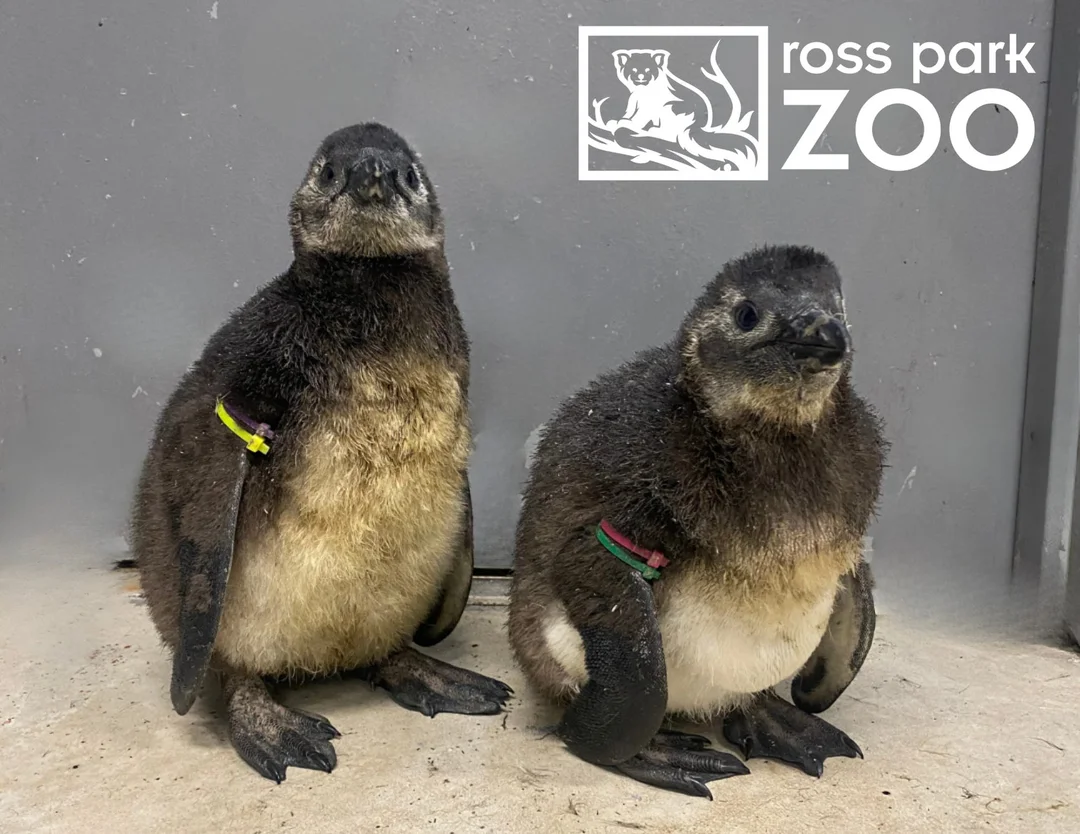
New Beginnings: African Penguin Chicks Parker and Morgan at Ross Park Zoo
In a heartwarming occurrence that highlights the ongoing conservation efforts for endangered species, Ross Park Zoo proudly announced the hatching of two African penguin chicks in March. These adorable newcomers, named Parker and Morgan, bring excitement not just to zoo staff but also to the wider community aware of the challenges facing these charming birds.
The hatching of Parker and Morgan marks an important event in the world of wildlife conservation. African penguins, unfortunately listed as critically endangered due to human-induced threats such as poaching and habitat loss, now more than ever need our attention and support. The success of these young penguins is a hopeful reminder of the efforts being made for their preservation.
Lucky and Aurora, the proud first-time parents, laid their first egg on March 23 and the second on March 26. Notably, it’s not uncommon for first-time penguin parents to find themselves overwhelmed, leading to creative solutions in the animal kingdom. Zoo staff assigned one egg to experienced foster parents Howard and Adasha, ensuring both chicks could receive the care they needed. This collaborative approach underscores a fascinating aspect of animal behavior commonly practiced among African penguins.
According to Sara Welge, the Animal Care Manager at the zoo, both sets of penguins have shown remarkable parenting skills, with Lucky and Aurora fiercely protecting their egg while Howard and Adasha embraced fostering duties. Such teamwork fosters a nurturing environment for the hatchlings and brings much-needed attention to the importance of supporting wildlife conservation efforts.
Despite the excitement, determining the genders of penguins is not straightforward, given that they lack noticeable sexual dimorphism. The recent blood tests confirmed that Parker is the male chick while Morgan is female, which gives the zoo staff a better understanding of their new charges, allowing for more targeted care as they prepare for public viewing this summer.
However, the road to visibility isn't without hurdles. As Welge noted, Parker and Morgan still need to develop their waterproof feathers and learn how to swim before they can join the other penguins in the big pool. This time of growth is significant not just for their survival but also serves as a crucial period for education about the species.
This joyous event serves as a reminder that, even in the face of concerning endangerment, success stories can emerge, inspiring the community to engage. As the zoo prepares to welcome visitors back to enjoy these adorable chicks, the public is encouraged to support sustainable fishing practices and to become advocates for the incredible yet vulnerable wildlife around them.
As we celebrate Parker and Morgan’s journey, we invite readers to share their thoughts. What steps do you think we all can take to ensure the future of endangered species like the African penguin? Your insights are essential as we collectively work towards a more sustainable world.